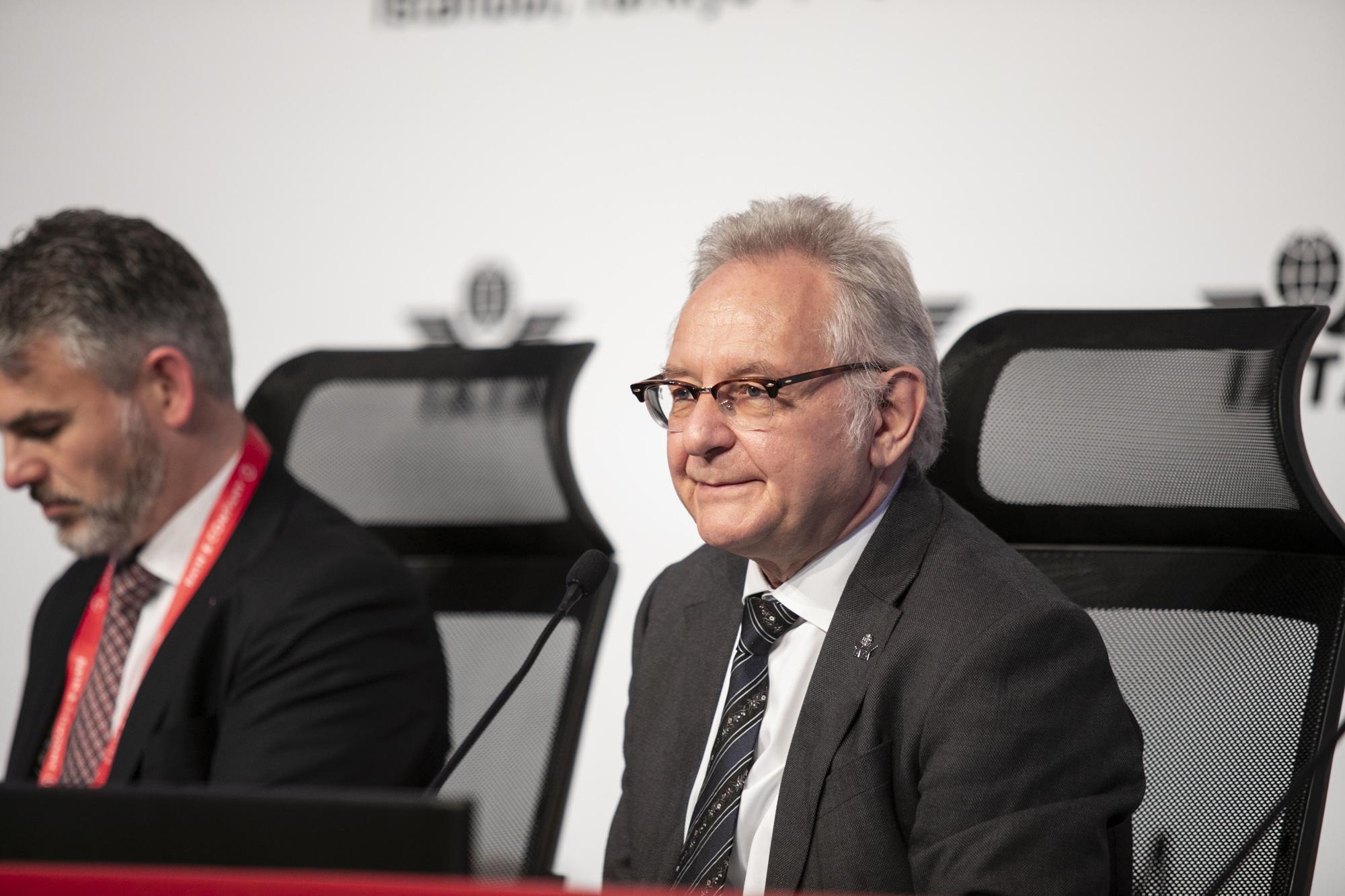
IATA deputy director general and corporate secretary Conrad Clifford.
ISTANBUL–Airlines want assurances that airports will offer all the slot capacity they have promised as the peak summer season gets underway.
“Airport capacity declarations are the basis on which slots are allocated, but unfortunately some airports have made little improvement to their capacity declaration for many years,” said IATA deputy director general and corporate secretary Conrad Clifford.
“We believe that they do need to find efficiency improvements to create more capacity,” he said. “When they do declare this capacity they need to deliver the capacity they have promised.”
“What we saw last summer was significant problems in delivering that capacity, which caused major disruptions,” he said.
Clifford added that other factors could also cause disruptions this summer.
“We’ve already seen, because of air traffic control issues in New York airspace, airlines have had to take a 10% reduction in flights, because of staff issues around ANSPs,” he said. “In Europe we have threatened strikes in many areas, particularly there’s a lot of publicity around France in terms of overflights and point-to-point traffic, so there are a lot of challenges that could arise this summer. What we’re really saying is that if an airport has declared capacity it has to stick by that. We hope that the airports will keep their word this summer.”
Clifford described the Worldwide Airport Slot Guidelines (WASG) as “the unsung hero of the air transport system,” supporting a period of air transport growth, increased consumer choice, more routes and greater efficiency within the industry.
“Some suggest that the 80:20 rule does not encourage sufficient use of airport capacity and is inefficient, but the evidence shows that completely the opposite is the case,” he said.
“This successful story could be damaged if national or regional slot regulations such as the European slot regulation don’t mirror the WASG or don’t keep up with the changes made in the WASG,” he warned.
“Globally harmonized rules are absolutely essential to this particular system,” he said.
Clifford also called for the reform of EU261 compensation legislation, which airlines argue is unfair when delays are caused by factors out of their control, such as ATC strikes. Ryanair has recently led a campaign to call for the European Commission to reform the legislation.





